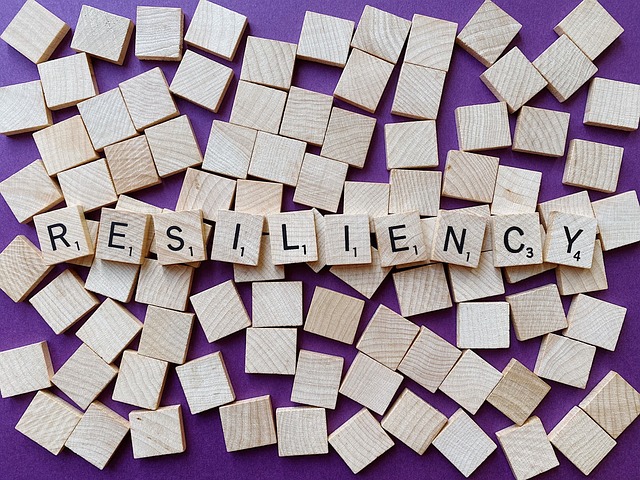Understanding Resilience: The Foundation of Personal Growth
Resilience isn’t just a buzzword; it represents a critical quality necessary for navigating life’s inevitable ups and downs effectively. At its core, resilience means the ability to bounce back from adversity, trauma, or significant stress. Think of it as your mental strength, your capacity to confront challenges head-on. Cultivating resilience leads to profound personal development and self-growth, making it imperative to understand how it functions.
Why does resilience matter? Well, it plays a crucial role in how we handle stress, setbacks, and failures. When life throws curveballs, a resilient person can find a way to adapt, recover, and emerge stronger. They don’t wallow in despair; rather, they view obstacles as opportunities for growth. This perspective doesn’t just help weather the storms of life but also cultivates a sense of purpose and well-being. Knowing this, let’s explore how you can begin to cultivate resilience in your everyday life.
The Power of Mindset: Shifting Perspectives
Your mindset profoundly influences your resilience. By adopting a growth mindset—the belief that abilities and intelligence can develop over time—you set the stage for self-growth and personal development. This perspective shifts the focus from failure to potential, encouraging you to view challenges as opportunities rather than threats. Imagine facing a difficult situation at work. If you perceive it as a chance to learn and grow, you are more likely to engage with it instead of shrinking back in fear. This shift is foundational in building resilience.
Now, how do you cultivate such a mindset? Start by re-framing your thoughts. Whenever you encounter a setback, consciously tell yourself that it’s a learning experience. Journaling can help; write down your thoughts surrounding difficult moments. Reflect on what you’ve learned and how you can apply these lessons moving forward. This practice not only reinforces your growth mindset but also enables you to see patterns in your responses to challenges. The narratives we tell ourselves can either empower us or limit us. Choose wisely!
Building a Support System: Connection is Key
Resilience doesn’t exist in a vacuum. It thrives on connections with others. Cultivating resilience requires a robust support system of friends, family, or mentors who can offer encouragement and advice during tough times. Emotional support can greatly buffer stress and improve recovery from challenges. Humans are social creatures; we naturally seek connection, especially when facing difficulties. Those uplifting conversations and shared experiences create a safety net that makes it easier to navigate the storms.
To build this network, actively seek relationships that inspire and nurture your personal development. Attend community gatherings, engage in group activities, or reach out to old friends whom you’ve lost contact with. It helps to be vulnerable, sharing your struggles with trusted individuals. Often, you’ll find they’ve faced similar challenges and can offer insights you might never have considered. So, foster these connections; they are essential for resilience.
Practicing Self-Care: Nourishing the Body and Mind
When life gets overwhelming, it’s easy to put self-care on the back burner. However, neglecting your physical and mental health can significantly diminish your resilience. Think of self-care activities as building blocks for robust resilience. Proper sleep, nourishing meals, and regular exercise contribute to your overall well-being. Never underestimate the power of rest; it rejuvenates both the body and mind, providing clarity needed for problem-solving.
Self-care also means taking time for activities that restore your spirit. Whether painting, hiking, or simply reading a book, these moments of joy can recharge you. Be intentional about making time for yourself every day. Even a few minutes of mindfulness or gratitude practices can significantly alter your outlook and emotional health. By nurturing yourself, you cultivate a foundation upon which resilience can thrive.
Embracing Change: Flexibility as a Resilience Tool
Life is unpredictable. Embracing change rather than resisting it can significantly aid in cultivating resilience. When you become flexible, adapting to new circumstances becomes easier, making it less daunting to face life’s hurdles. Think of change as an opportunity to grow rather than a disruption. This perspective allows you to explore new avenues, acquire new skills, and expand your horizons.
To become more adaptable, consider stepping out of your comfort zone. Try new things, whether it’s picking up a hobby, exploring a new place, or taking on a different project at work. Each time you expose yourself to change, you chip away at your fear of the unknown and enhance your resilience. You’ll begin to view uncertainty as a friend rather than an enemy. This shift can infuse your life with excitement and curiosity, making you more robust in the face of challenges.
Setting Realistic Goals: Steps Toward Achievement
Having clearly defined goals gives direction in life. However, it’s crucial that these goals are realistic and attainable. Setting and achieving small milestones can significantly bolster your resilience over time. When you regularly meet smaller objectives, you build confidence. This confidence feeds into your larger ambitions, creating a positive feedback loop that enhances your overall sense of capability.
Start by breaking down your goals into incremental steps. Perhaps you want to improve your physical health. Instead of committing to a rigorous exercise regime overnight, start small—maybe a daily 10-minute walk. Celebrate each achievement, no matter how small. This celebration reinforces your progress and fuels motivation to tackle the next step. Such strategies keep you focused and resilient as you advance through life’s challenges.
Learning from Adversity: Turning Setbacks into Strengths
Adversity is a breeding ground for growth. When you encounter difficulties, view them as moments to learn rather than insurmountable barriers. It’s common to initially react with shock or frustration when faced with challenges. However, by allowing yourself the space to process these emotions, you eventually reach a point of introspection where real learning can occur. Adversity can reveal your strengths, show you what to prioritize, and help you recognize what truly matters in your life.
Reflecting on past challenges can provide you with a wealth of knowledge. Consider keeping a journal where you document what you learned from struggles, both big and small. This practice not only serves as a record of growth but also acts as a resource for future challenges. When you face difficulties down the road, revisit these notes. They can offer perspective and remind you of your resilience. Life becomes a cycle of growth through reflection, and this awareness strengthens your ability to adapt and thrive.
Conclusion: The Journey of Cultivating Resilience
Cultivating resilience is an ongoing journey rather than a destination. It requires constant reflection, self-awareness, and a willingness to grow. The benefits are immense—enhanced mental strength, improved emotional health, and a richer connection to oneself and others. By embracing change, fostering connections, practicing self-care, setting realistic goals, and learning from adversity, you create a solid foundation for resilience in your personal life.
FAQ
- What is resilience? Resilience is the ability to recover from setbacks, adapt to change, and keep going in the face of adversity.
- How can I cultivate resilience in my daily life? You can cultivate resilience through maintaining a growth mindset, building strong relationships, practicing self-care, and embracing change.
- Why does mindset affect resilience? A growth mindset enables you to view challenges as opportunities rather than obstacles, making it easier to adapt and recover from setbacks.
- Can self-care really impact my resilience? Yes, prioritizing self-care helps maintain your physical and mental health, providing the energy and clarity needed to face challenges.
- What role does adversity play in building resilience? Adversity provides opportunities for reflection and growth, helping you learn and develop new skills for future challenges.



